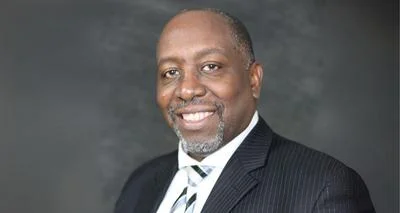The Illinois Policy Institute is proposing a budget conservative group leaders contend would put an end to the state’s nearly two-year impasse, closing a $7.1 billion deficit without adding any new taxes.
The Budget Solutions 2018 plan calls for comprehensive property tax reform -- which Illinois Policy Institute execs insist amounts to $3.4 billion in savings -- by taking simple steps like freezing property taxes over the next five years and putting an end to state subsidies and mandates that, the group argues, needlessly drive up the cost of government.

Illinois Policy Institute Vice President Ted Dabrowski.
“The state is teetering on the brink of bankruptcy,” Illinois Policy Institute Vice President Ted Dabrowski said during the press conference held on Jan. 31. “Unlike any other plan, this plan assures taxpayers they won’t be treated like an ATM machine.”
Beyond the tax property freeze and the elimination of state subsidies to local governments at a pegged savings of $1.75 billion annually, the plan also calls for requiring local districts and universities to cover the cost of annual pensions at an estimated annual savings of $970 million.
"It focuses on the reforms that could actually get us to a balanced budget and give us a way out of our fiscal death spiral," Rep. Allen Skillicorn (R-Crystal Lake), who is working on the counter proposal with Rep. Jeanne Ives (R-Wheaton), said in a phone interview following the press conference. "Specifically, what it does is eliminates quite a few unfunded mandates from local governments, so that we can actually do property tax relief for people. There also are reforms for the way that government does business. So, we can save money providing services for one. It also takes away some of the additional spending items that we've added in the last few years."
Cutbacks in special grant subsidies for select school districts impacted by local property tax caps is pegged at saving an additional $250 million, while enacting changes to workers’ compensation laws is estimated to be good for saving local governments at least $200 million annually.
"People need to know that it actually puts us on the path to solvency without a tax increase," Ives said. "So it's the complete opposite spectrum of where the Senate 'Grand Bargain' is going, which is nothing more than additional taxes on Illinoisans (who) cannot afford it."
Ives said the Budget Solutions 2018 plan offers a better way forward for the state.
"People have a solid choice here: which path do you want to go on?," Ives said. "So we've laid our marker down with this budget saying, 'We can do this without tax increase, you just (have to) give us the ability to reform how we work.'"
The proposal calls for teachers to be required to pay more into their own pension funds, at an annual savings of some $375 million. Additionally, it requests the implementation of a state pension that moves all new eligible workers into a 401(k) themed retirement plan as opposed to the current defined pension plan, which now has the state facing at least a $130 billion pension deficit.
“Illinois has had structural deficit for years,” Dabrowski said. “In January 2011, lawmakers raised personal interest taxes and told us it would make the economy strong and allow Illinois to pay off debt. From 2011 to 2014, Illinois collected $31 billion in new taxpayer revenues, but the tax increase have made things worse.”
Dabrowski pointed to the way thousands of taxpayers have moved out of the state and countless businesses have left as a clear-cut indication that they are heading in the wrong direction.
“Lawmakers raised taxes but never reformed spending,” he said. “That’s why we are here today.”
Cognizant of the fact Illinois homeowners already pay the highest property taxes in the country, Illinois Policy Institute execs highlighted that their plan goes the extra mile in providing relief for struggling homeowners.
“Raising taxes will not change Illinois,” Dabrowski said. “Budget Solutions 2018 offers no gimmicks: we will balance the budget and will not spend more money than we take in.”
Other elements of the proposal include reforming the prevailing wage requirements, thus allowing counties to set their own compensation rates; reducing the state’s payroll by roughly 10 percent; streamlining Medicaid spending; and tweaking to higher spending budgets. According to the proposal, this would comprise a combined annual savings of roughly $2 billion.
“As it is, Illinois government encourages local governments to spend more on things their constituents would never approve of,” Dabrowski said.






 Alerts Sign-up
Alerts Sign-up